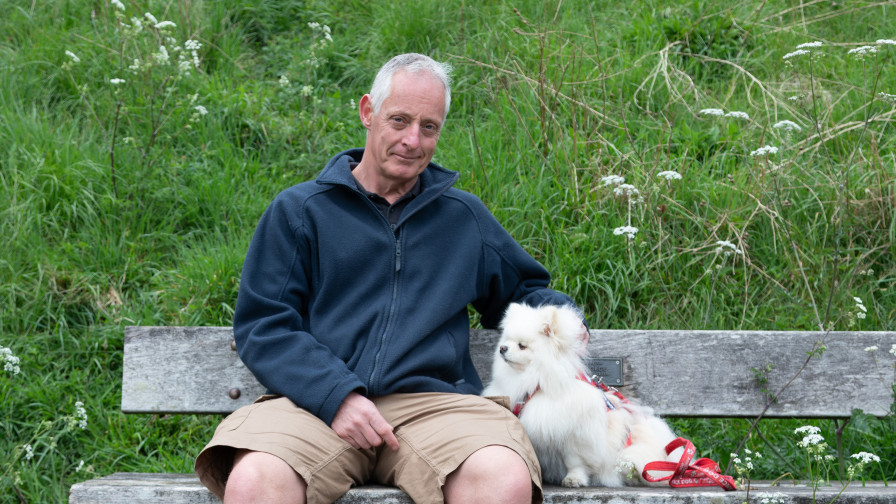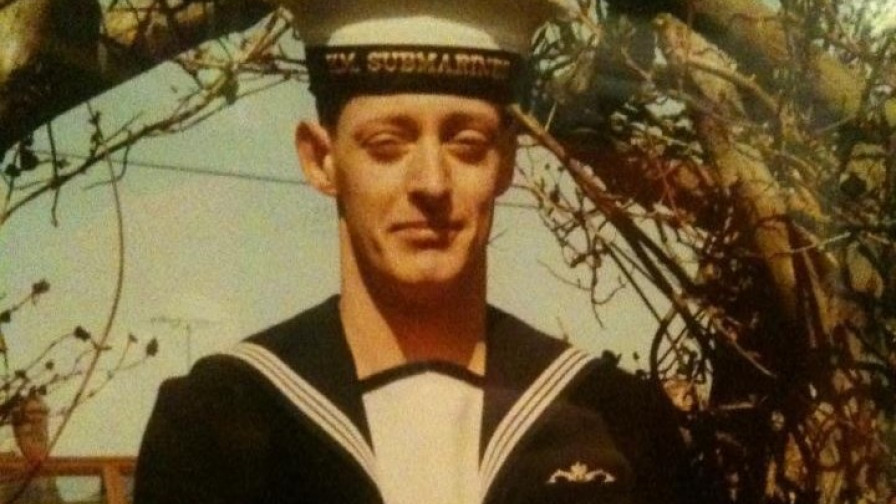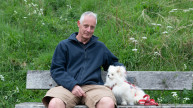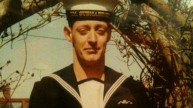Martin's Story
“Combat Stress has helped me get my life back.”
Navy veteran Martin’s traumatic experiences during his service stayed buried for many years, until a distressing event as a civilian brought them to the fore. Here he shares how it affected him and how our specialist mental health treatment has given him a new outlook on life.
Martin joined the Navy in 1986, following in the military footsteps of his father who had served in the Army. Aged 17 when he joined, Martin started out as a marine engineer working on submarines, gaining the ships diver qualification.
There were two incidents during Martin’s 10-year service that stayed with him. The first was when a valve failed during a submarine dive and water started to spray from the open pipe. “The water and the mist - even now it gives me goosebumps thinking about it,” he says.
“It was difficult to breathe, to see, and my body went into fight or flight.”
The next was a diving incident when diver recall (an exploding device to call the divers back) was used without warning those in the water. “I was part of a three-man team and we were tied together in the water doing a search of the outside of the boat to make sure everything was as it should be,” Martin says. “The water in Portsmouth had such poor visibility - you could hold your hand in front of your mask and not see it. We were doing everything by touch, making sure that nothing had been attached, or fallen off.
“Then an explosion went off in the water and it was so disorientating. I was in the middle and the guy below me started going down, because we didn't know which way was down or which way was up. The guy above me was going the other direction and I was stuck between the two of them.”
Martin and his colleagues managed to find their way out of the water and were left shaken by what had happened. “We hadn’t been expecting it, but it was like a depth charge,” he says.
“It freaked me out so much, but military culture is very much ‘get on with it’. You man up and think it was nothing. And then you bury it.”
Life went on for Martin, who decided to leave the Navy in 1996. Once on Civvy Street he worked as a diving instructor in the Red Sea, before moving back to the UK. He got married and had three children as his life continued. His trauma remained buried, until his daughter had a near fatal fall when the family were descending after climbing Scafell Pike mountain in 2023. After this, Martin’s experiences in the Navy resurfaced.
“That trauma unlocked the other two experiences,” he says. “That's when I started having all sorts of issues with my temper. I just lost it and started pushing my family away, especially my wife. I wasn’t a nice person and was in self-destruct mode. Part of me must have known I was doing it, but I just didn’t want to be with anybody. Then the nightmares and flashbacks started."
Martin’s wife told him he needed to get help, which he started first through private healthcare then when those sessions came to an end, he found Combat Stress. After calling our Helpline Martin was diagnosed with PTSD and started treatment through our England South hub. However, he found it hard to accept that he could receive our treatment.
“I know people who have suffered,” he says. “I've been very lucky - I left the Navy and had a stable job, a wife and three healthy children, so I didn't feel that I was worthy of taking up Combat Stress’ time. It was hard, but my clinician insisted I was.”
Martin had Eye Movement Desensitisation and Reprocessing (EMDR) therapy with a clinical psychologist to help him process his trauma, first online and then in-person.
“My treatment allowed me to process what had happened,” he says. “My wife and I have started to do things together again, whereas before I didn’t want to even go out. I can see a future together, whereas before I was living almost day-to-day.
“Combat Stress has helped me get my life back.”




